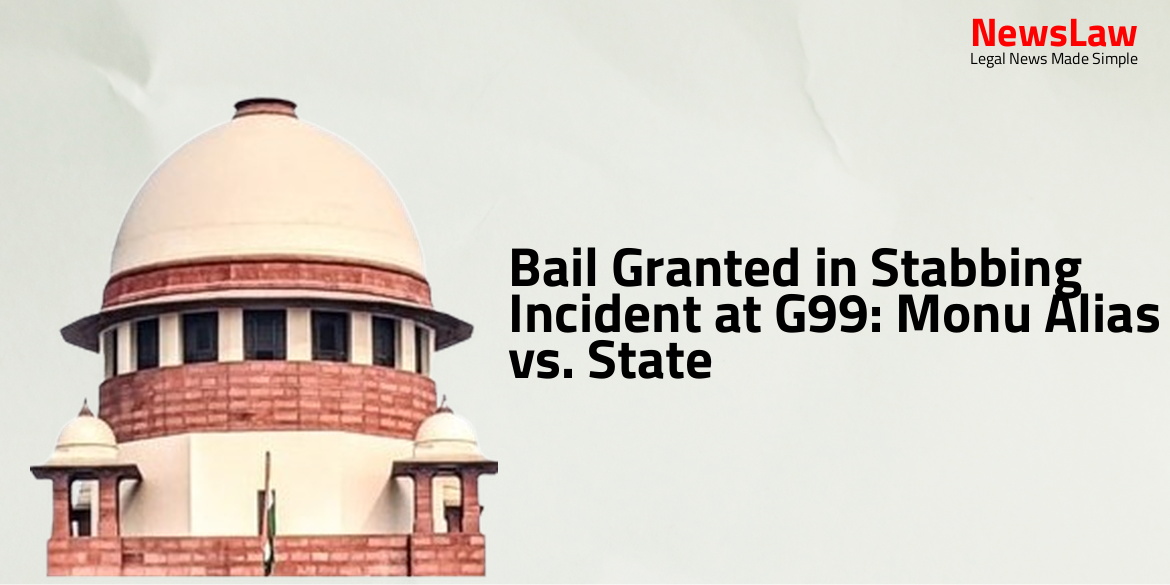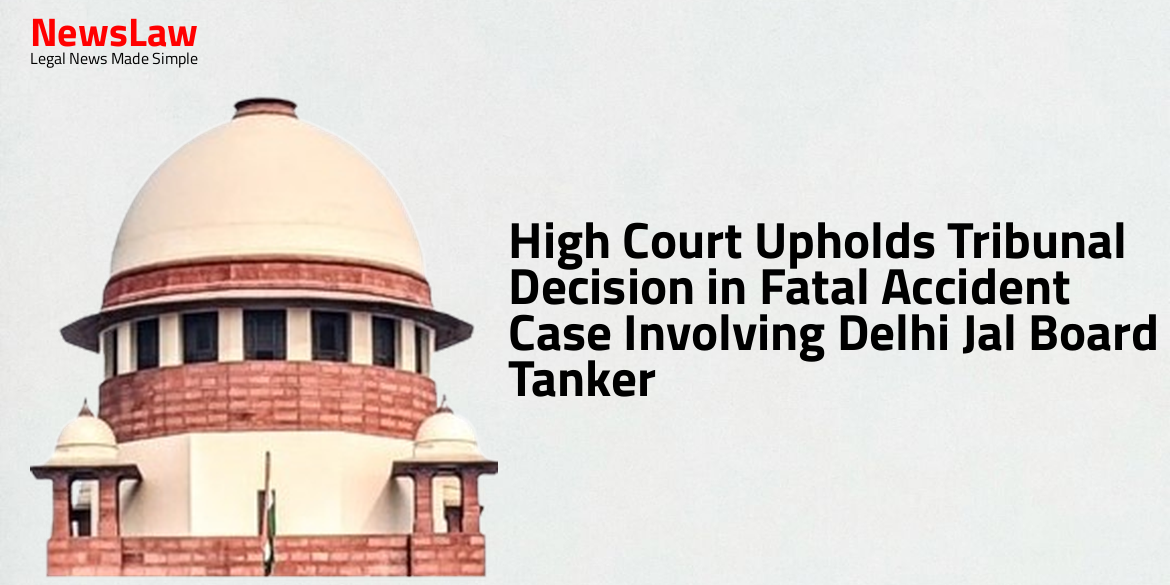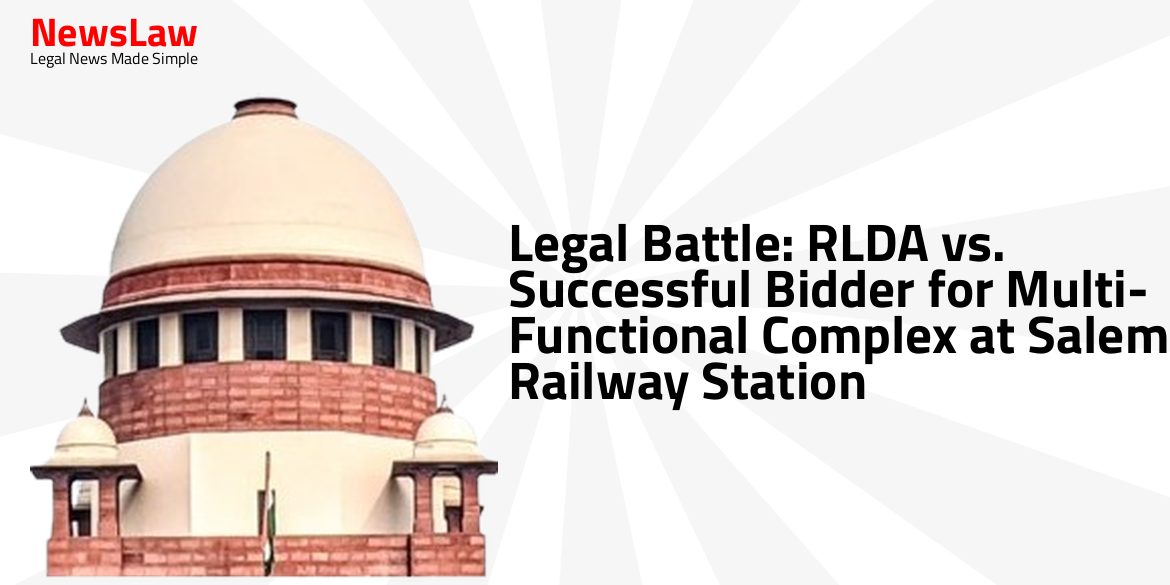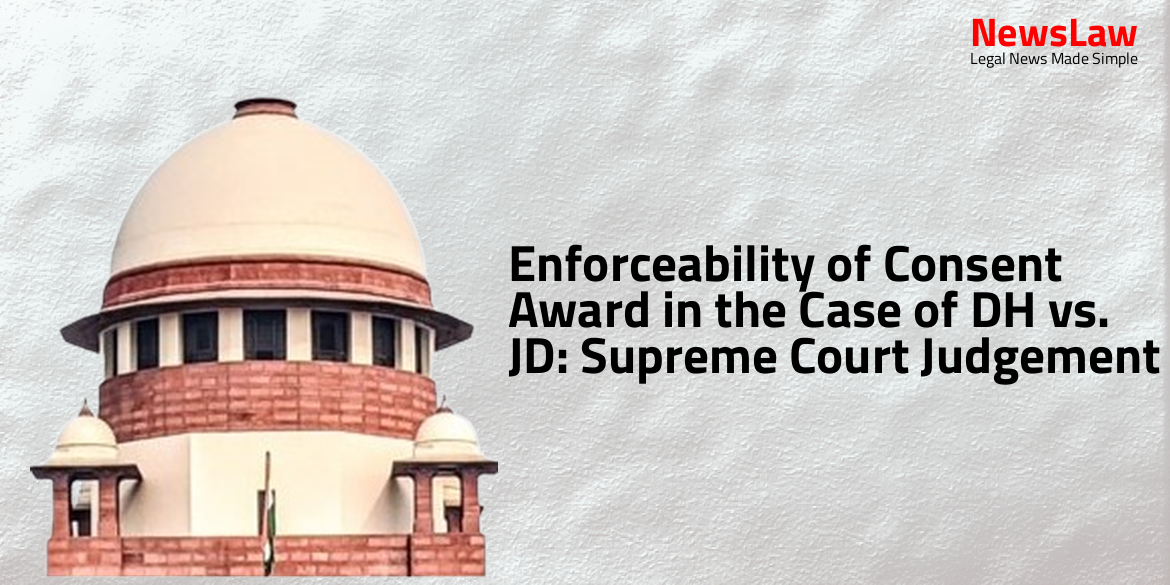In a recent development at the Delhi High Court, bail has been granted to Monu alias in the stabbing incident at G99. The court took into account several crucial factors while considering the case. Stay tuned for more updates on this significant legal matter.
Facts
- Information received regarding stabbing incident at G99, Dev Nath Mandir, Rajender Public School on 14.09.2018
- Injured person identified as Monu alias
- Chargesheet filed against the applicant under Section 302/34 IPC r/w Section 25/27/54/59 of the Arms Act
Arguments
- The applicant argues that there is no strong evidence against him in the chargesheet or the prosecution’s evidence in the Trial Court.
- The prosecution failed to establish any motive for the applicant’s involvement in the alleged offense.
- The Additional Public Prosecutor for the State opposes granting any relief to the applicant.
- No specific role causing injury to the victim has been attributed to the applicant, and his involvement is based on a belated statement from the deceased’s father.
- The FIR relies solely on the statement of police official Shankar Singh, without any eyewitnesses.
- The applicant has been in custody since 19.09.2018, apart from a period of interim bail following HPC guidelines.
- The applicant did not misuse the liberty granted during the interim bail.
- The witness PW-4, the deceased’s father, turned hostile and denied seeing the applicant with a knife or giving a knife blow to the deceased, contradicting his earlier police statement.
- The allegations against the accused are serious in nature.
- The gravity of the charges cannot be understated.
- The prosecution has presented compelling evidence supporting the allegations.
Analysis
- The Court must consider various factors while deciding on a bail application.
- These factors include the existence of a prima facie case against the accused, the seriousness of the offense, potential punishment, risk of absconding, and witness intimidation.
- The duration of incarceration is a relevant factor to be weighed as well.
- The applicant has not misused any previous interim bail granted to him.
- Continuing to detain the applicant during the pending trial, especially when it may be lengthy, serves no meaningful purpose.
- Contradictions exist in the statements provided by the deceased’s father regarding the alleged offense.
- The investigation is completed, charges are filed, and essential witnesses have been examined by the Trial Court.
- The primary purpose of jail is to ensure the accused’s presence during the trial.
- The applicant has been in custody since a specific date, except for a period where interim bail was granted as per guidelines.
- Once it is evident that a timely trial is not feasible and the accused has already been in custody for a considerable period, courts are generally obligated to grant bail.
- The primary objective is not punitive or preventive; deprivation of liberty is viewed as a form of punishment.
- Appropriate conditions should be put to address concerns of evidence tampering or trial evasion.
- Conditions must be reasonable and in line with fair trial principles.
- Balance must be struck between ensuring attendance at trial and not unduly restricting the applicant’s freedom.
- The court should consider the individual circumstances of the case when setting conditions.
Decision
- The applicant has made out a case for grant of bail.
- The applicant is directed to be released on bail upon furnishing a personal bond of ₹50,000/- with two sureties of the same amount.
- Specific conditions include not tampering with evidence, not leaving Delhi without informing the SHO, appearing before the Trial Court as directed, providing the address of residence and not changing it without informing the IO/ SHO, and keeping the mobile phone on and providing the number to the concerned IO/ SHO.
- Observations in the present order should not influence the trial outcome or be seen as an expression of opinion on the case merits.
- Bail application is allowed with the mentioned conditions.
- State can seek redressal by filing for bail cancellation if any new complaint is lodged against the applicant.
Case Title: PRINCE @ DAULAT Vs. STATE GNCT OF DELHI (2024:DHC:3861)
Case Number: BAIL APPLN.-6/2024



